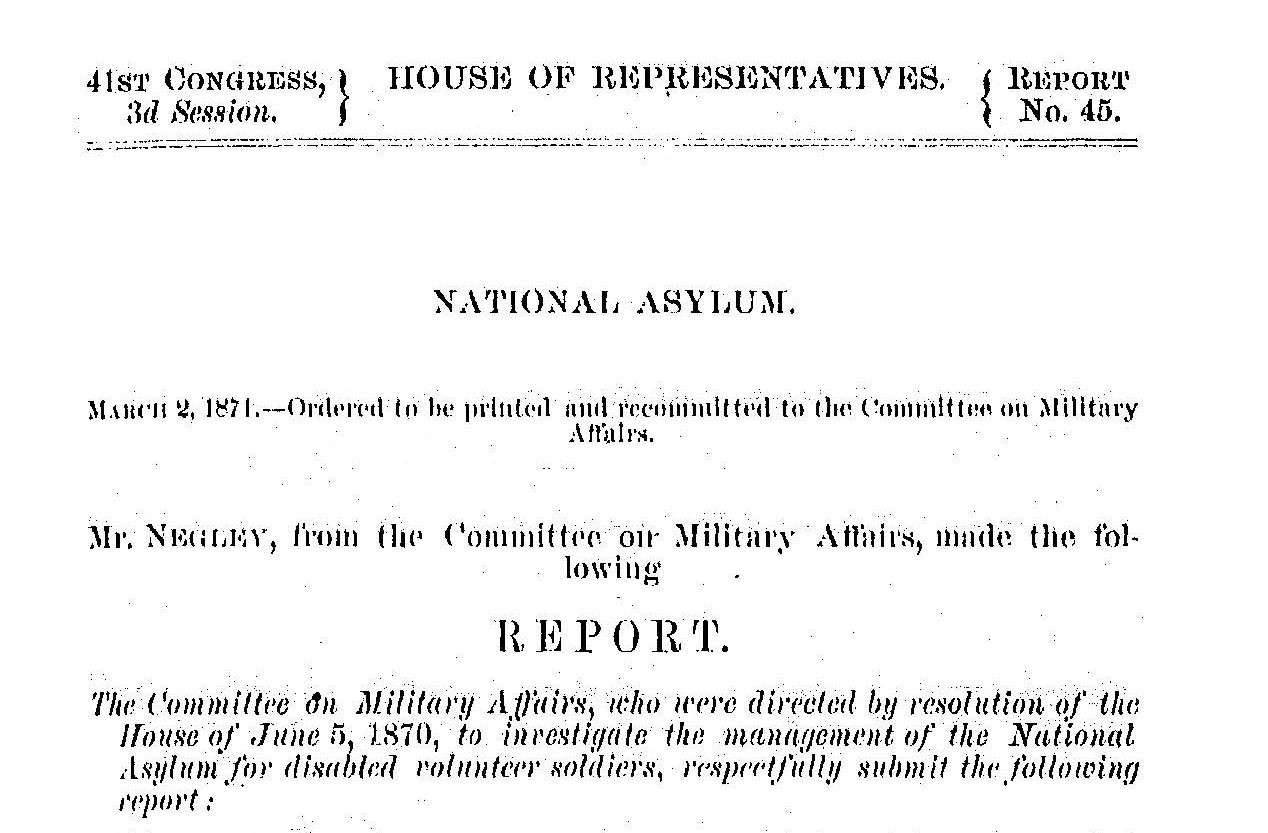
Featured Stories
1870 Annual Report for the National Home for Disabled Volunteer Soldiers
Have you ever wondered where do historians, curators and archivists find all the information that goes into museum exhibits, books, and documentaries? One place is government reports. The National VA History Center preserves the history of the National Home for Disabled Volunteer Soldiers as a predecessor of the modern VA. We do a lot of research related to objects from the Home and we write about what life was like for those who lived and worked there. The Annual Reports that were provided to congress are a great place to look for this information. These reports provide a great deal of information, and you don’t have to travel to an archive, can do it from your computer. See the link at the bottom to access the reports.

Featured Stories
A tragedy of two B-17 crews over Berlin
Four men, a pair on two different B-17s in World War II, interred in four different National Cemeteries. Each man has a different story, but tied together in a fateful crash on June 21, 1944 over Germany. While these crew members of the famed Flying Fortress aircraft were lost, their journey only began as the U.S. government sought to find their remains, and return them to American soil for their rightful burial in a national cemetery.
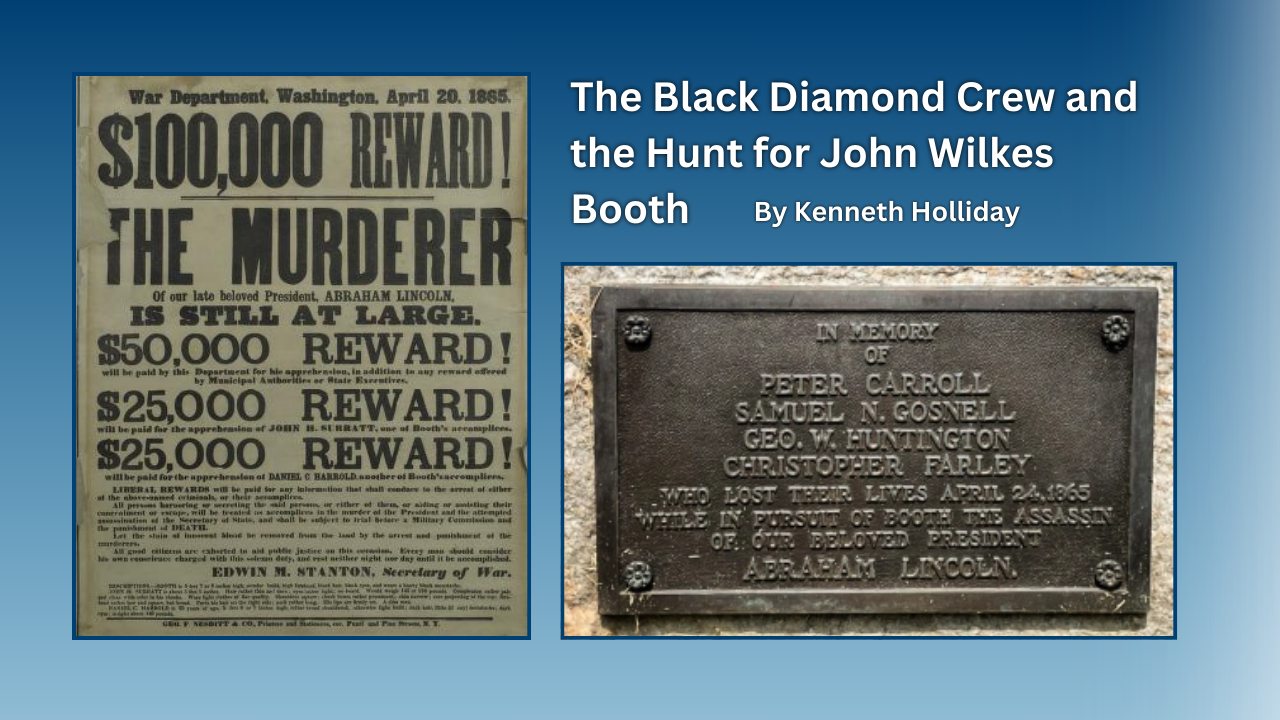
Featured Stories
The Black Diamond Crew and the Hunt for John Wilkes Booth
During the late evening, early hours of April 23-24, 1865, the Black Diamond, a ship on the Potomac River searching for President Abraham Lincoln's assassin John Wilkes Booth collided with another ship, the USS Massachusetts. The incident was a terrible accident during the frantic mission to locate the fleeing Booth before he escaped into Virginia. Unfortunately many lives were lost, including four civilians who had been summoned from a local fire department by the Army. For their assistance during this military operation, all four were buried in the Alexandria National Cemetery, some of the few civilians to receive that honor.
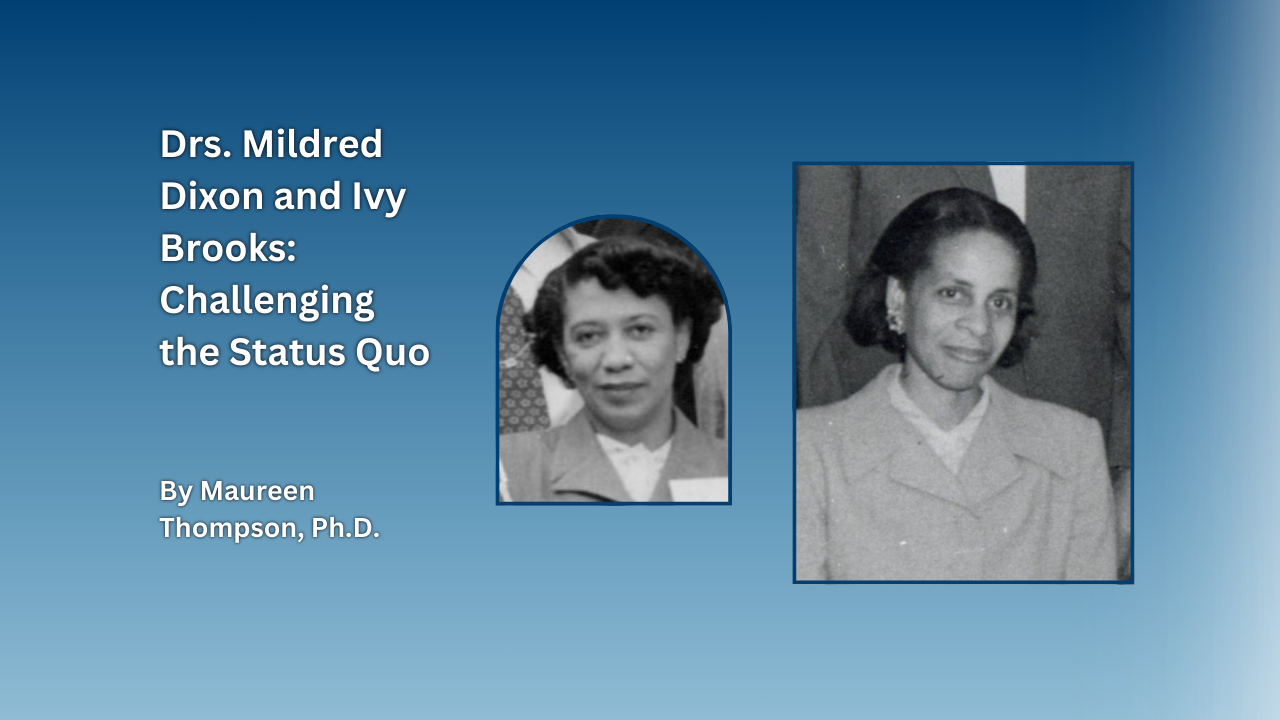
Featured Stories
Drs. Ivy Brooks and Mildred Dixon: Challenging the Status Quo
In the mid-twentieth century, the lives of Dr. Ivy Brooks and Mildred Dixon, two trailblazing Black women physicians, converged at the Tuskegee, Alabama, VA Medical Center. Doctor's Ivy Roach Brooks and Mildred Kelly Dixon shared much in common. Both women were born in 1916 in the northeastern United States and received training in East Orange, New Jersey. They both launched careers in alternate medical professions before entering the fields of radiology and podiatry, respectively. Pioneering many “firsts” throughout their professional lives, both women faced and overcame the rampant racism and sexism of the era.
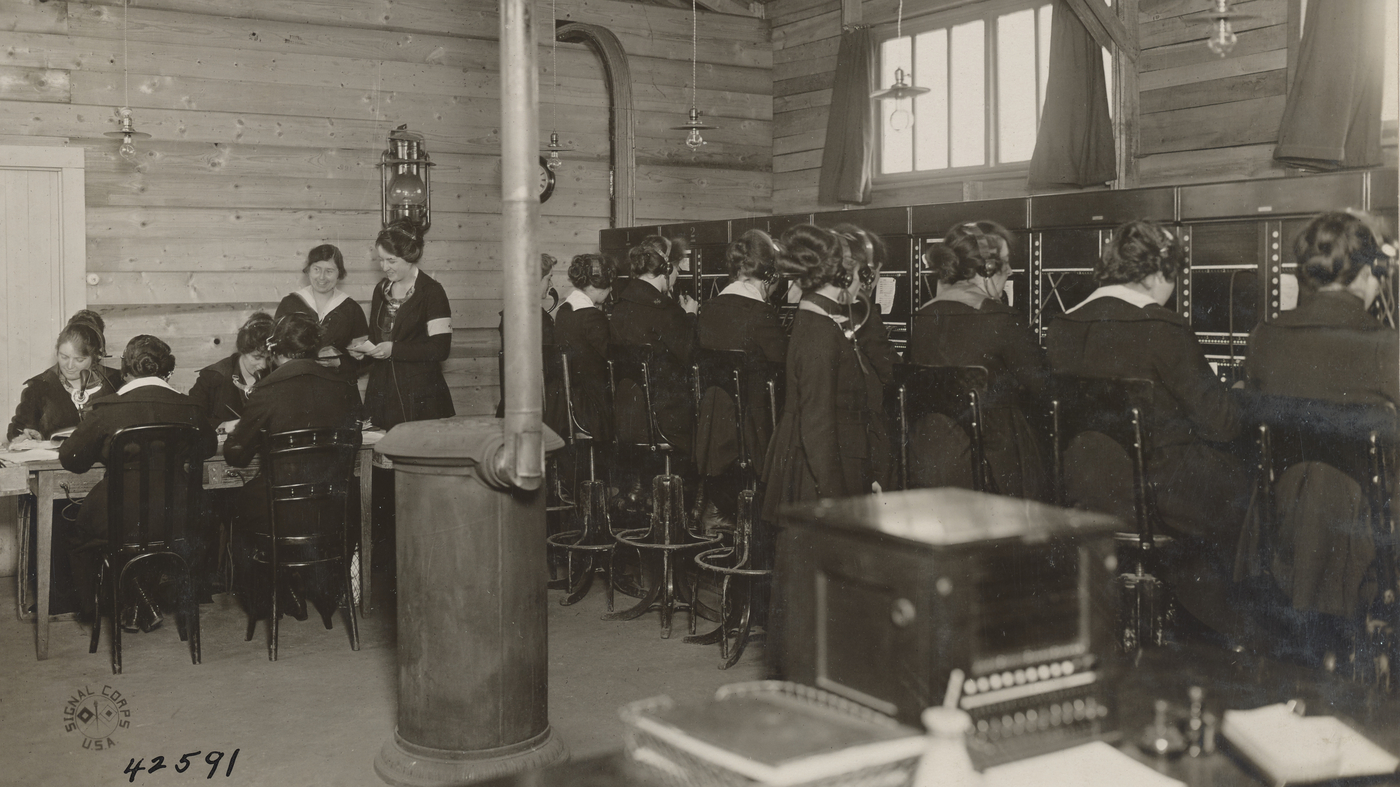
Featured Stories
‘Hello Girls’ of World War I Quest for Veteran Recognition
After the United States entered World War I in 1917, American Expeditionary Force commander General John J. Pershing requested the recruitment of women telephone operators that were bi-lingual in English and French. Eventually 233 were selected out of over 10,000 applicants, and they served honorably through the war, earning the nickname of 'Hello Girls.'
However, their employment was not officially recognized as military service and therefore were neither honorably discharged, or eligible for the benefits other returning Veterans would receive. This kicked off a 60-year fight for 'Hello Girls' to receive legal Veteran status.
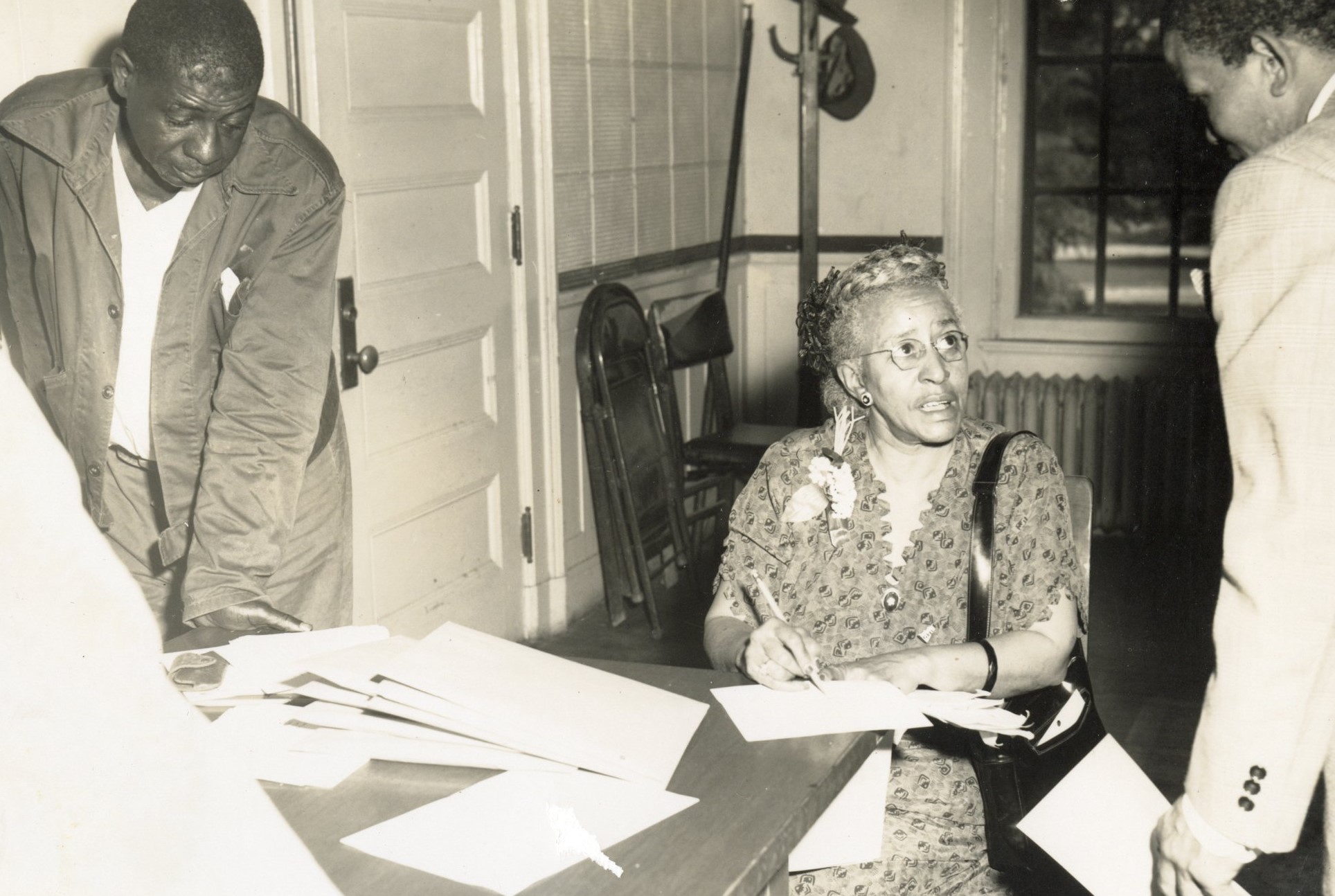
Featured Stories
Tuskegee’s Librarian: Dr. Sara Marie Johnson Peterson Delaney
Dr. Sara (Sadie) Marie Johnson Peterson Delaney was a trailblazer in promoting libraries and literacy – and worked at what would eventually become today’s VA. She was the Chief Librarian of the VA hospital in Tuskegee, Alabama, for 34 years.
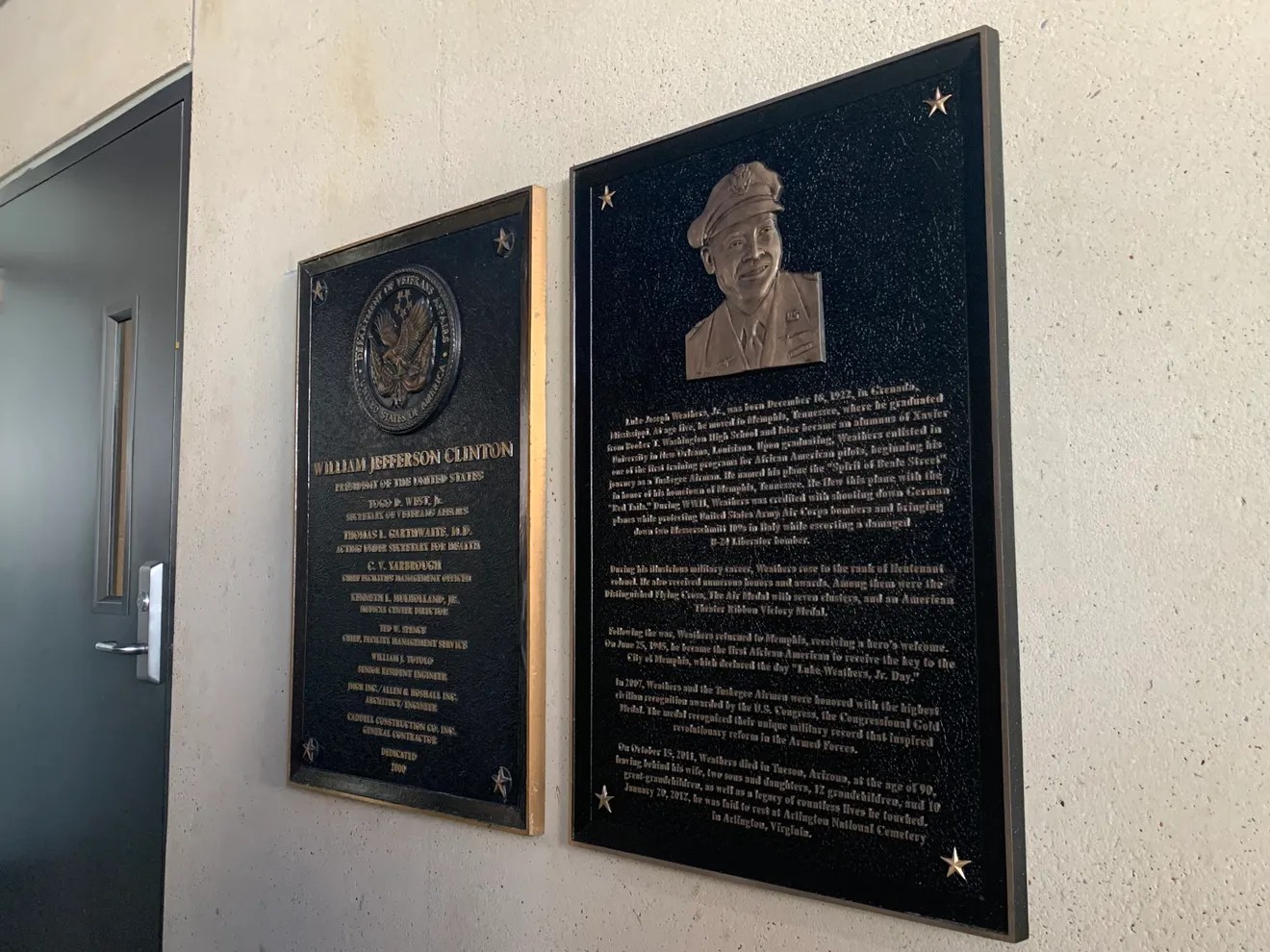
Featured Stories
Luke Weathers Jr.: Tuskegee Airman gets VAMC naming honors
The Memphis VA Medical Center was officially renamed the Lt. Col. Luke Weathers, Jr. VAMC after the Memphis native and Tuskegee Airman who served in World War II and was the city's first African American air traffic controller.
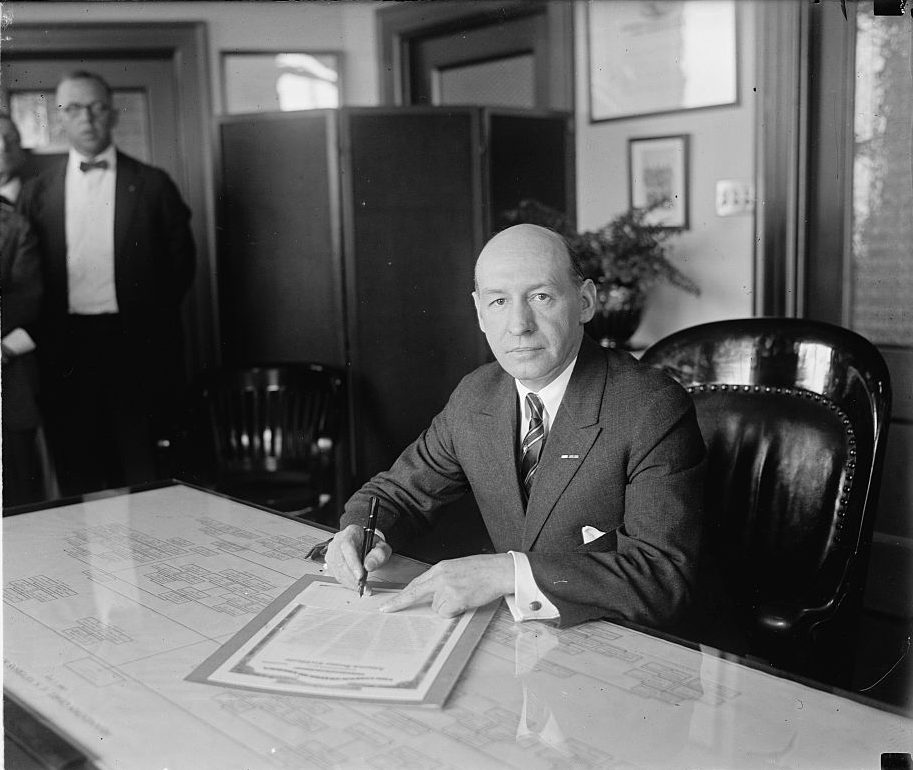
Featured Stories
Brig. Gen. Frank Hines – 1st VA Administrator
Frank Hines was the longest tenured VA leader, from 1923 until 1945 and end of World War II. He led two different Veteran agencies, first the Veterans Bureau and then the Veterans Administration. Despite constant challenges and changes to the system, he was a stable leader for a new federal agency.
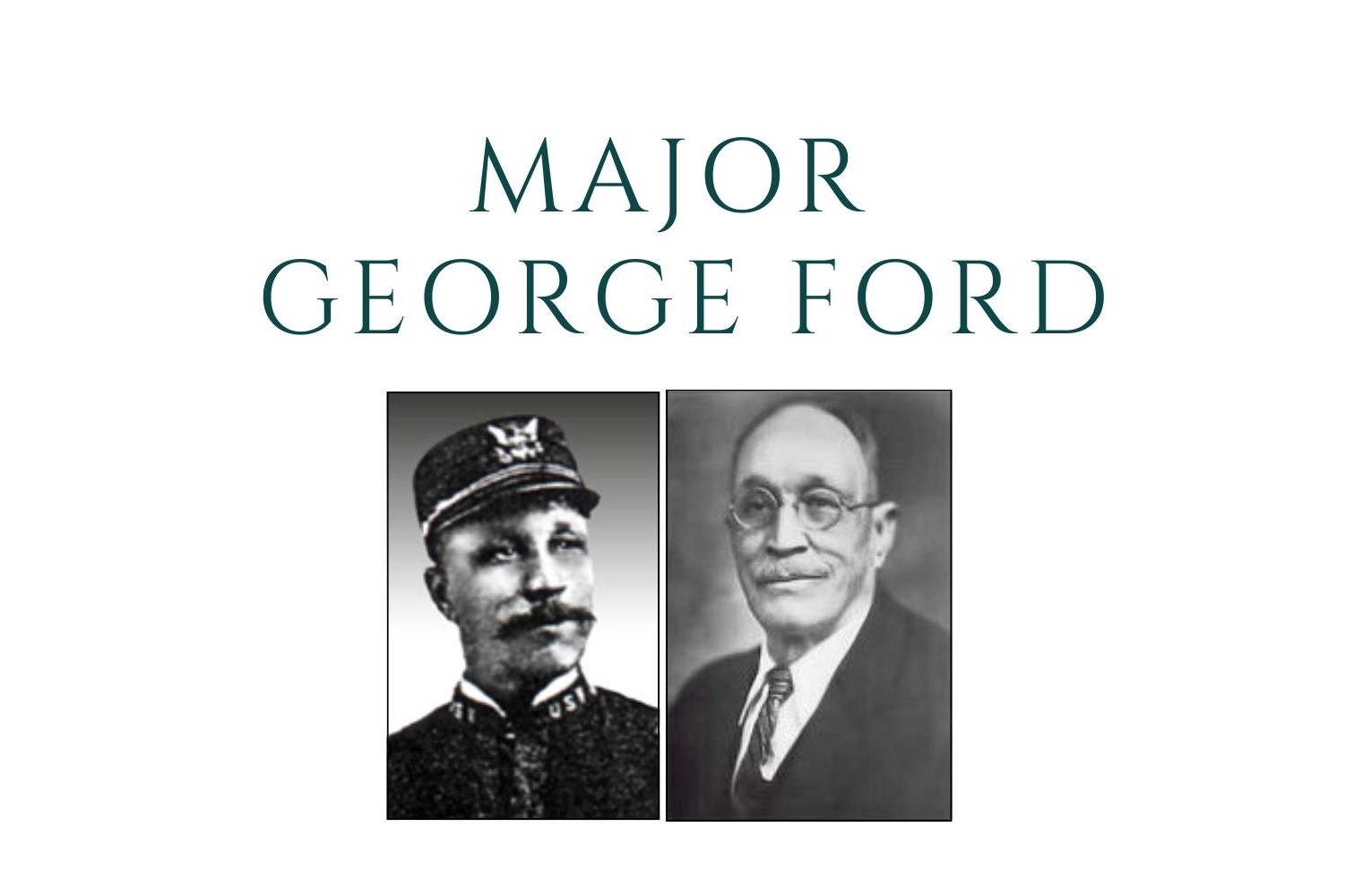
Featured Stories
George Ford – Veteran and National Cemetery Superintendent
George Ford was a Veteran of the famed "Buffalo soldiers" after the Civil War. A U.S. law gave preference to employ Veterans to oversee the growing cemetery system for Union dead. So in 1878, Ford became one of the first Black Veteran superintendents of a national cemetery.
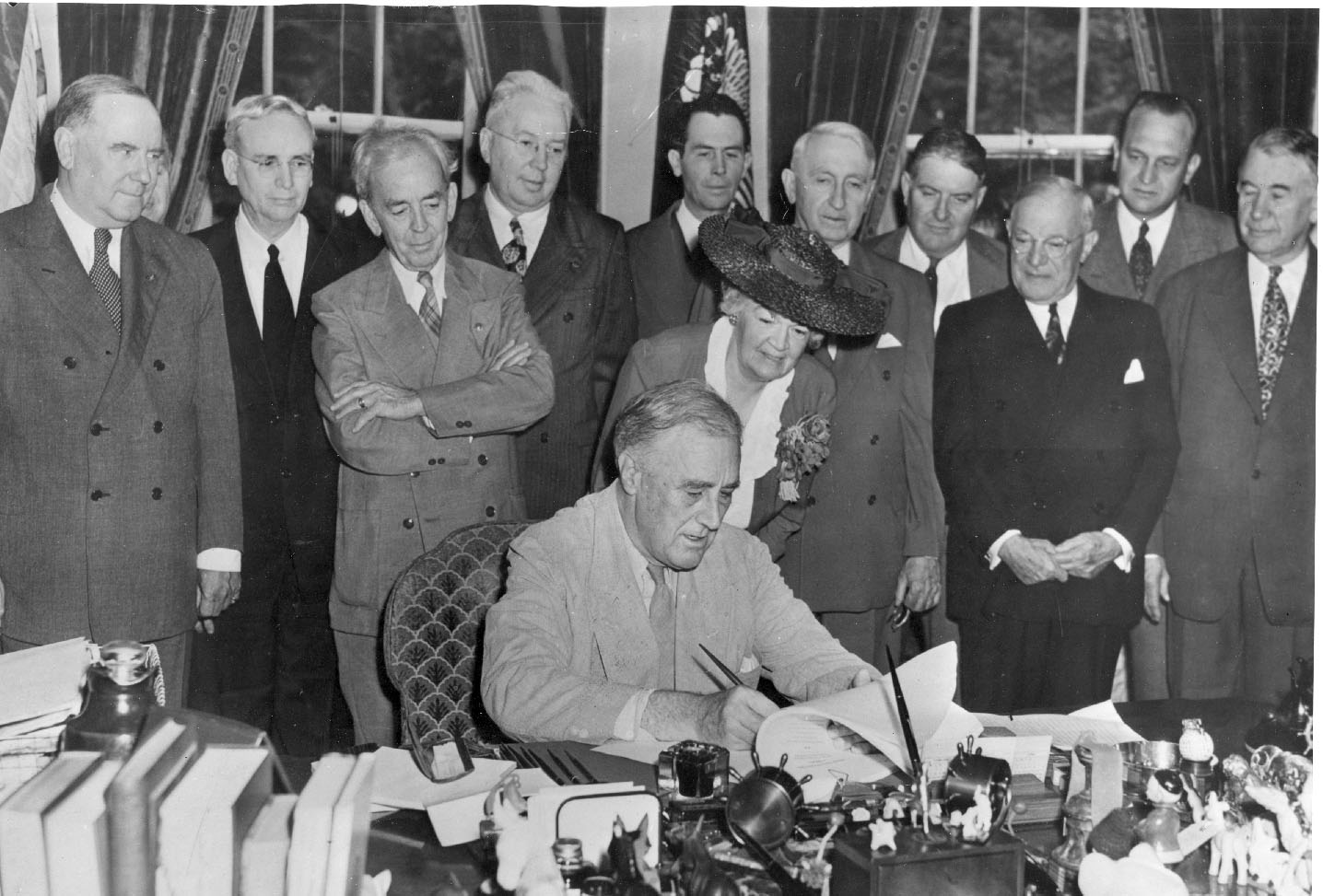
Featured Stories
Edith Nourse Rogers, Champion of Veterans and Women in the Military
Edith Nourse Rogers was a trailblazing politician and prominent proponent for Veterans benefits. She accomplished much in her decades-long career - to include admitting women into military service and creating a G.I. Bill of Rights.
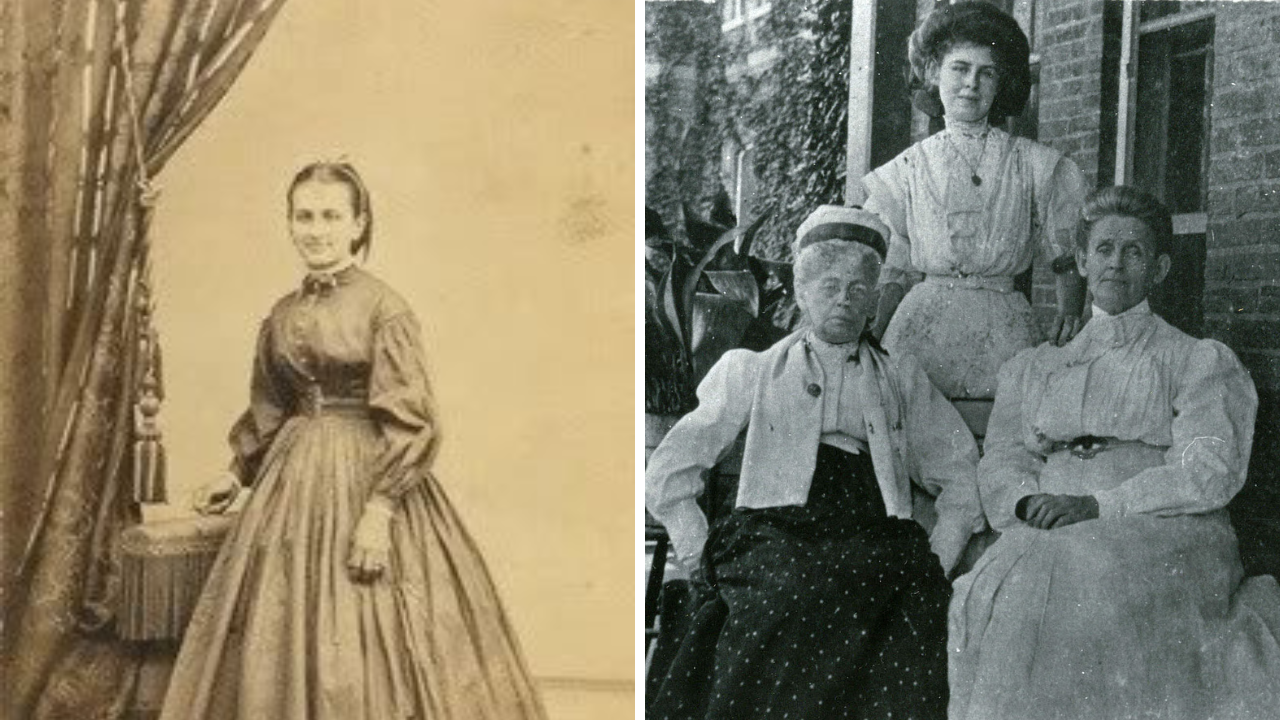
Featured Stories
Delphine Baker and Emma Miller: Women and the Creation of the National Home for Disabled Volunteer Soldiers
After the Civil War, thousands of Volunteer Soldiers needed care. Two women, Delphine Baker and Emma Miller were critically important to the creation and operation of the National Home for Disabled Volunteer Soldiers, the governments answer to providing healthcare to the Union volunteers during the Civil War.
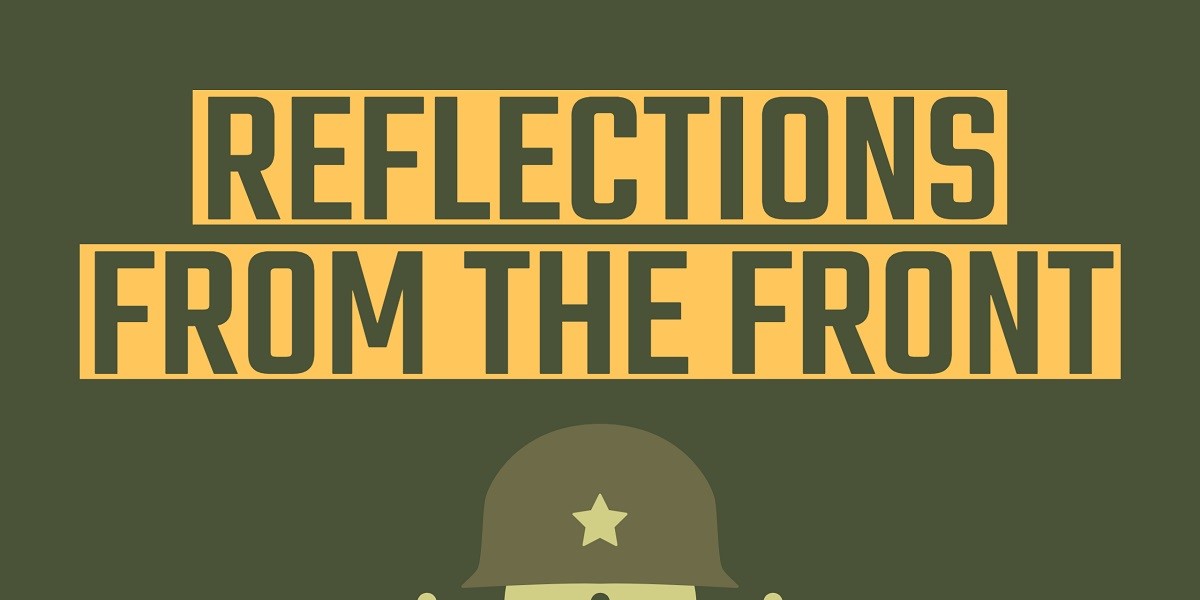
Featured Stories
Reflections from the Front: A New Podcast from the VA History Office
Women have been a vital part of the nation’s military from the very beginning. Although they were not able to serve in an official capacity until the twentieth century, women have always found ways to assist war efforts. In a new podcast series "Reflections from the Front", VA History Office interns Parker Beverly and Hannah Nelson take interviews from women Veterans and brings to life the stories of incredible resolve and adversity.



